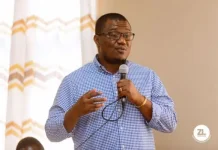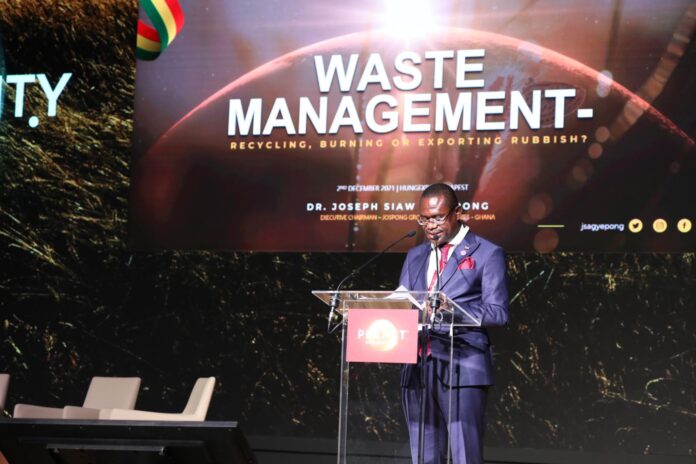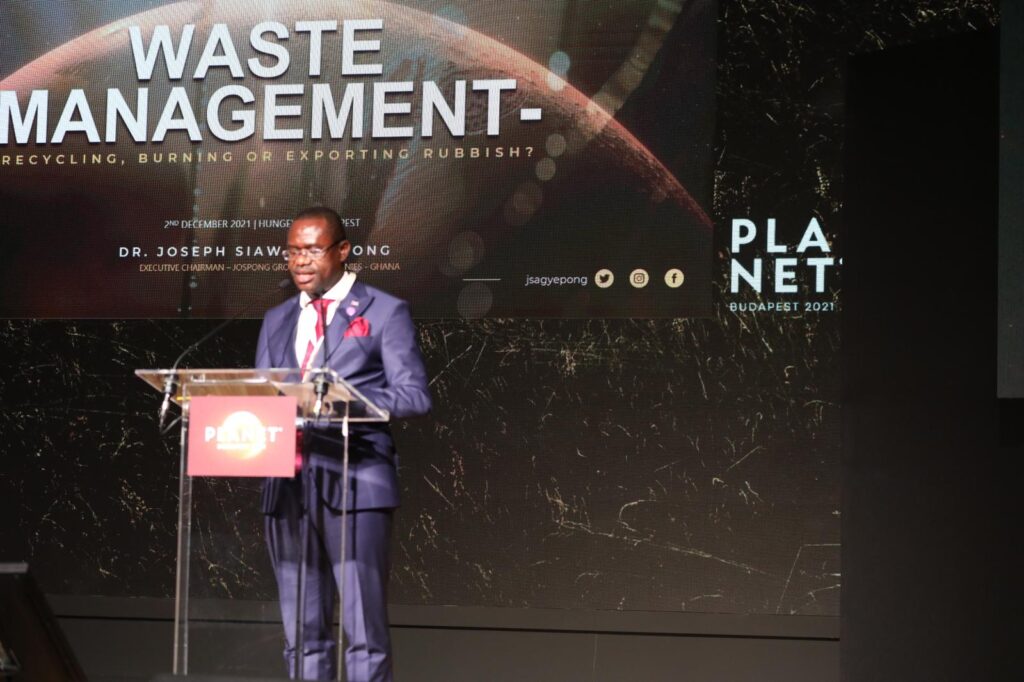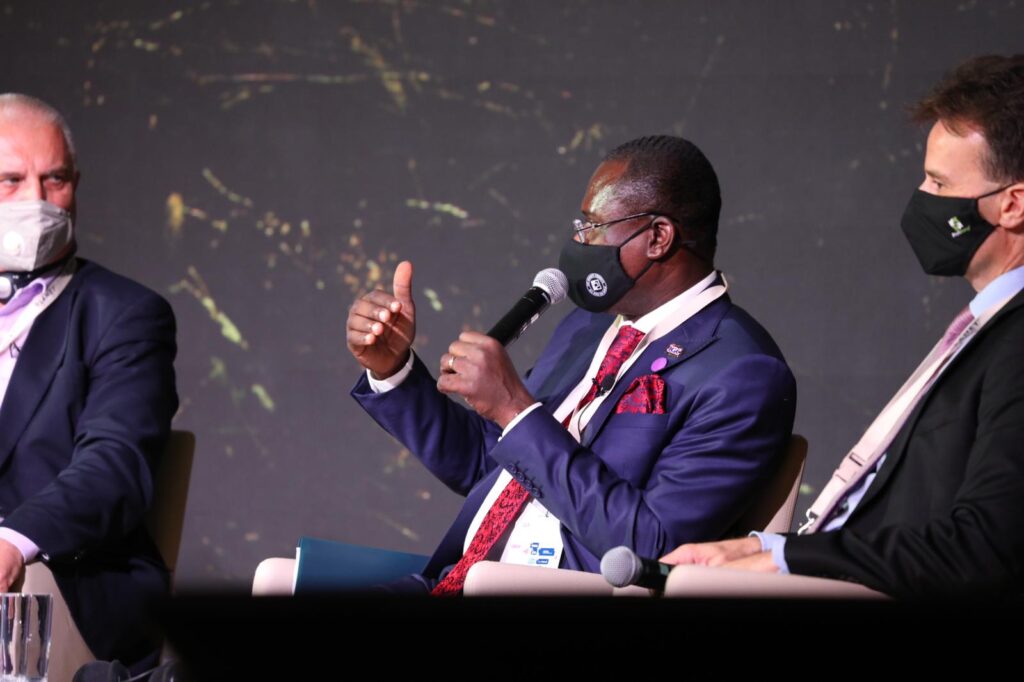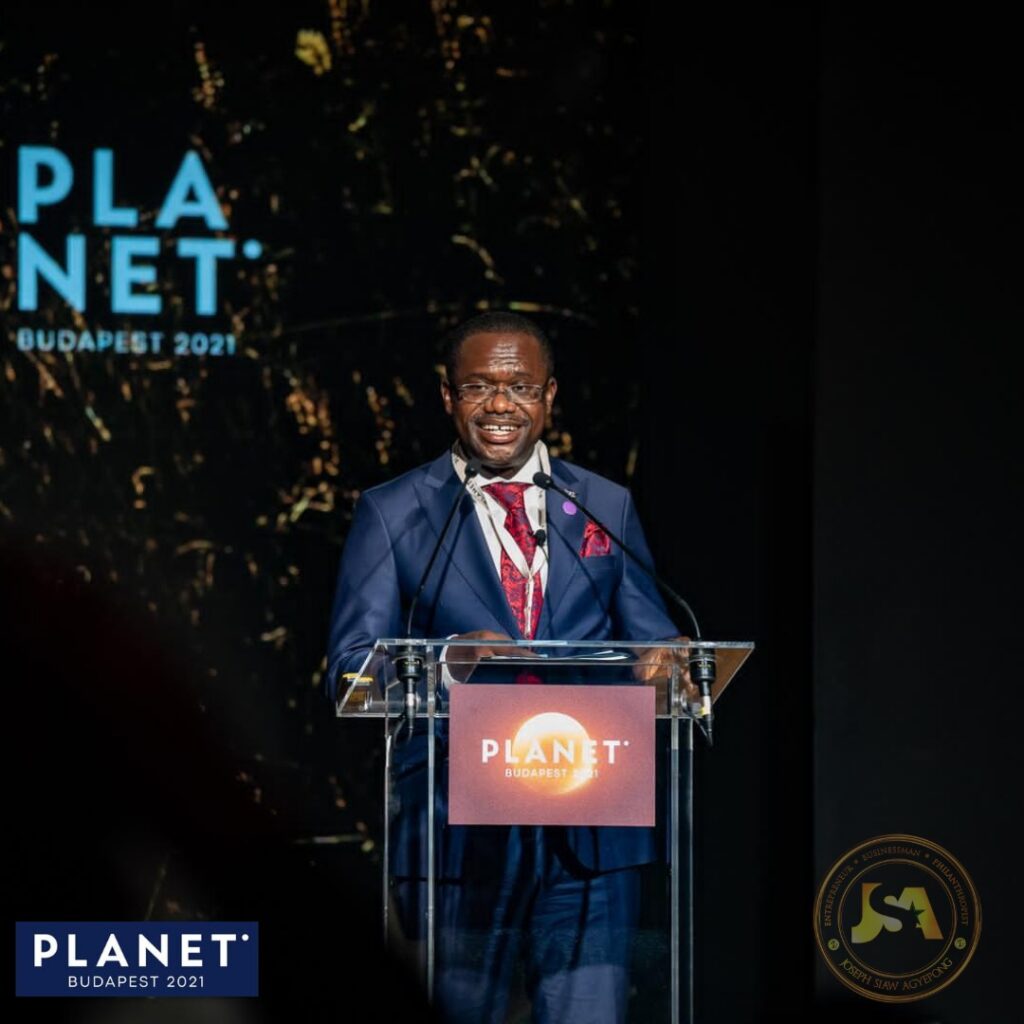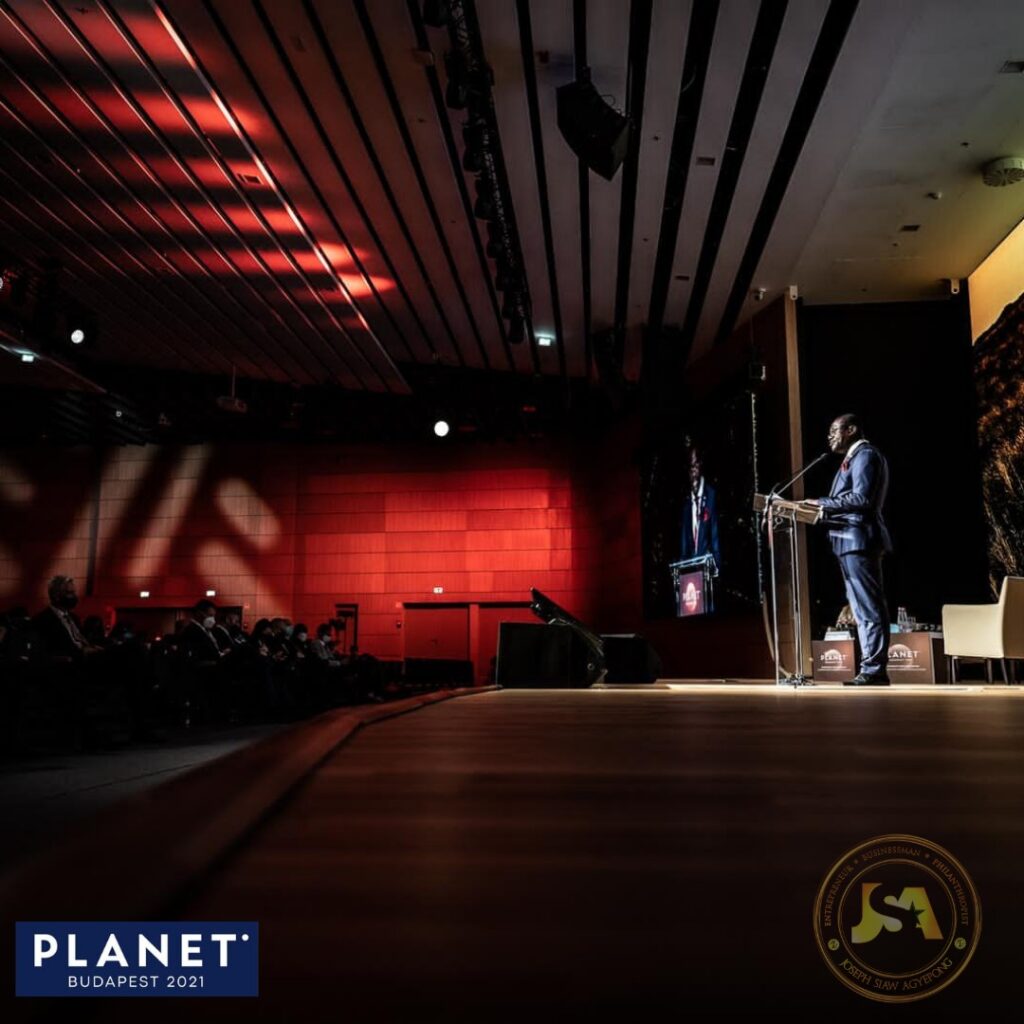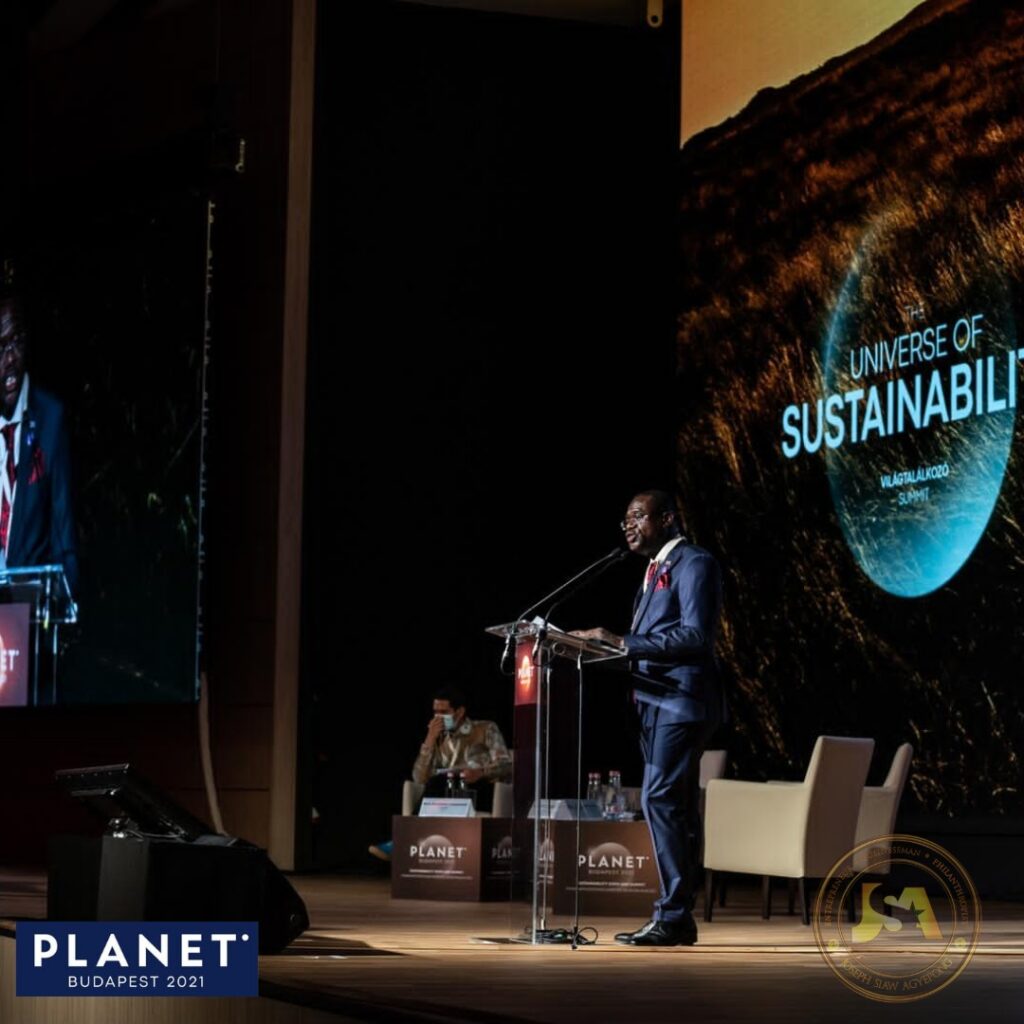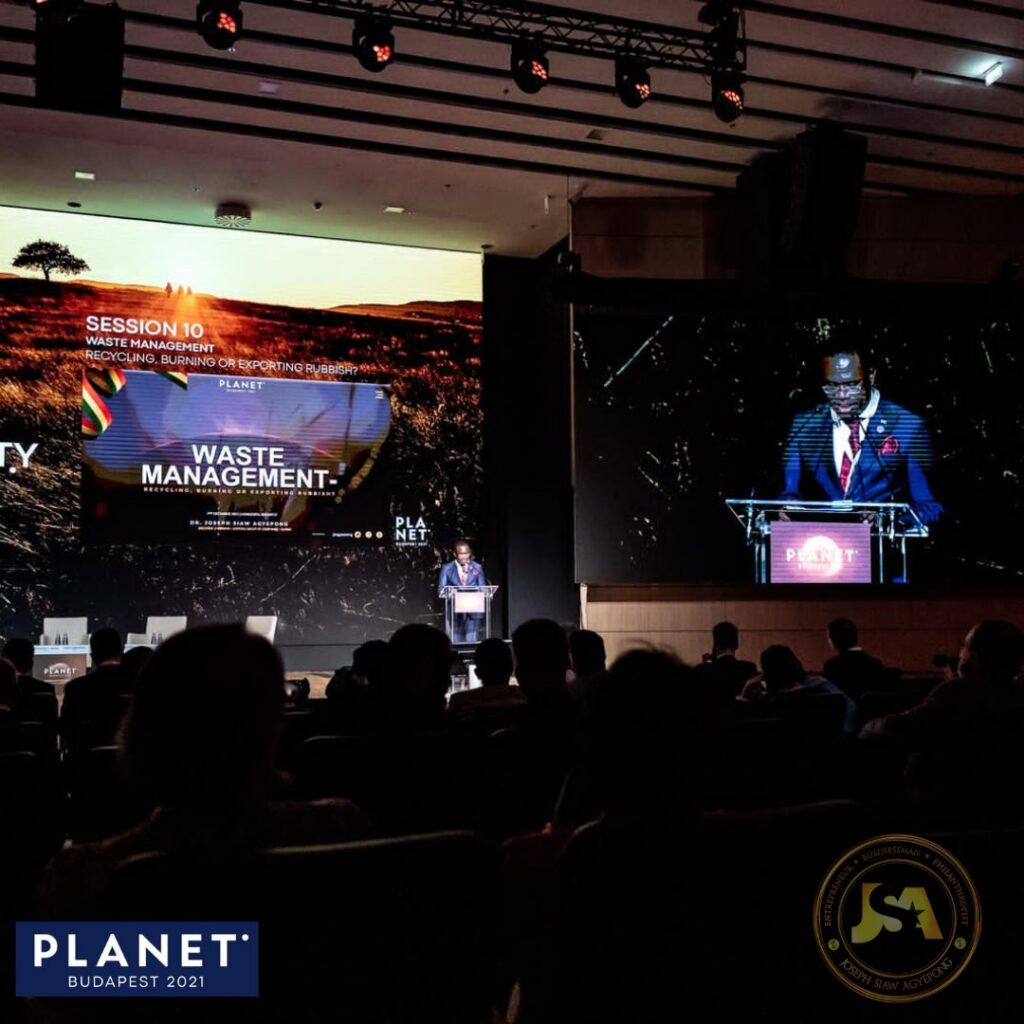Executive Chairman of Jospong Group of Companies (JGC), Dr Joseph Siaw Agyepong, has made a clarion call for waste management to be dealt with in a sustainable and timeous manner in the local environments.
He said such an approach should be done based on lessons drawn from technological advancement, taking into consideration peculiar cultural settings of the various environments.
Dr Siaw Agyepong made the call when he delivered the keynote address while participating in the Planet Budapest 2021 Sustainability Expo and Summit at Budapest, Hungary on Thursday, December 2, 2021.
It was on the theme: “Waste Management – Recycling, Burning or Exporting Rubbish.”
According to him, achieving such a “laudable objective” calls for a proper waste management system which must be seen as a process and not “an action.
“A sustainable, integrated process should include but not be limited to collection, treatment, recovery, recycling, disposal systems, financing models, operational models, technologies, and citizen engagement programmes,” he proposed.
The quest for sound waste management, Dr Siaw Agyepong pointed out, must be seen as a global human endeavour.
He buttressed this by quoting Article 3 of the Universal Declaration of Human Rights which stipulates that “everyone has the right to life” and Article 25 states among other things that “everyone has the right to a standard of living adequate for his health and well-being and that of his family”.
While admitting that many countries still resort to poor disposal of waste, he stressed that it can also not be denied that the world has been provided today with three waste alternatives — recycling, burning and exporting rubbish.
To attain sustainable and integrated waste management, the executive chairman of JGC indicated that waste must first be seen as a resource and not waste.
“My humble submission (which I believe you all share) is that waste must not be seen as the undesired end-result of human activities, but as a resource which can be employed for diverse purposes. It offers trends and provides opportunities toward our pursuit of a better world,” he noted.
He was, therefore, happy that societies were progressively moving away from simply seeing waste as a bad end-product to a resource.
“Recent developments in some geographical areas, for instance, confirm that “pollution is, after all, a winnable battle”. This is a most welcome indication of a change in perception and resolve,” he said.
In the case of Africa, Dr Siaw Agyepong said solid waste especially, is projected to grow to 244 million tonnes per year by 2025 on the continent
This, he indicated, has seen the African Union (AU) call on African governments to commit to recycling at least 50 per cent of their urban waste they generate by 2023 and to grow urban waste recycling industries.
“As a group, the African Union sees proper waste management as being central to ensuring human and ecosystem health, and this provides economic and environmental benefits. While significant efforts are being made across Africa to ensure better access and services, many places still have inadequate infrastructure for efficient waste management,” he said.
On waste management situation in Ghana, Dr Siaw Agyepong contended that successive governments have been keen on dealing with the waste menace.
“In 1999, Ghana first published its Sanitation Policy which was later updated in 2010. A strategic ‘National Environmental Sanitation Strategy and Action Plan’ was enacted and this included an investment plan to ensure the achievement of the policy,” he recounted.
In spite of all these good policies, he underscored that Ghana lacks the requisite financial resources to support the full implementation of these policies which has brought in its wake some challenges in the disposal of waste.
According to him, it was in the midst of these challenges that Zoomlion Ghana Limited, a subsidiary of JGC, introduced modern technology to revolutionise the sanitation industry.
The efforts of Zoomlion, he noted, has led to a paradigm shift from carting waste for burning or burial to the use of simple modern collection processes and dumping at landfill sites.
He said JGC through Zoomlion has ensured the effective and timely collection of waste thereby reducing littering and indiscriminate dumping; crude dumping; and burning of waste.
This, he said, has helped largely to mitigate and divert uncontrolled Greenhouse Gas emissions which worsen climate change.
He used the opportunity to highlight some of the accomplishments of Zoomlion. Among these, he said, included the tricycle concept, composting and recycling, plastic recycling, liquid waste treatment and 1 Million Bin Concept.
He said Zoomlion has also been collaborating with the academia in the pursuit of a sustainable environment while creating job opportunities for people.
“Hence, we have partnered the following universities: the University of Ghana, Kwame Nkrumah University of Science and Technology, Harvard School of Public Health, the Harvard Centre for African Studies (on whose Board I am privileged to serve) among other academic institutions to bring about innovations in our efforts in ensuring a sustainable future,” he mentioned.





